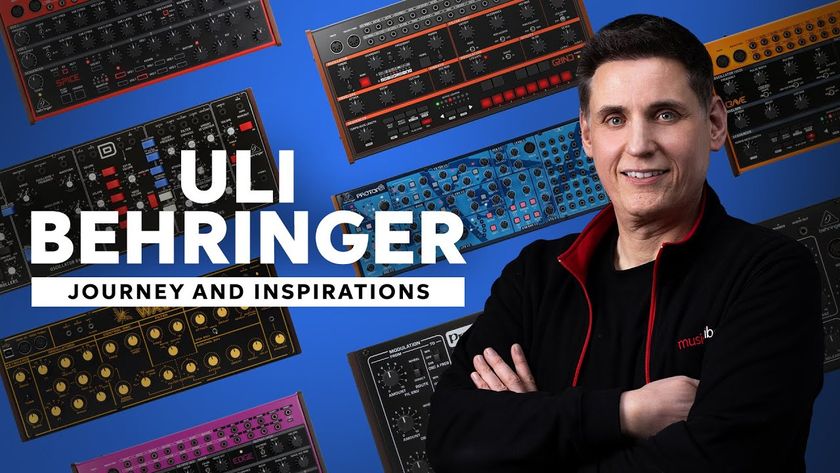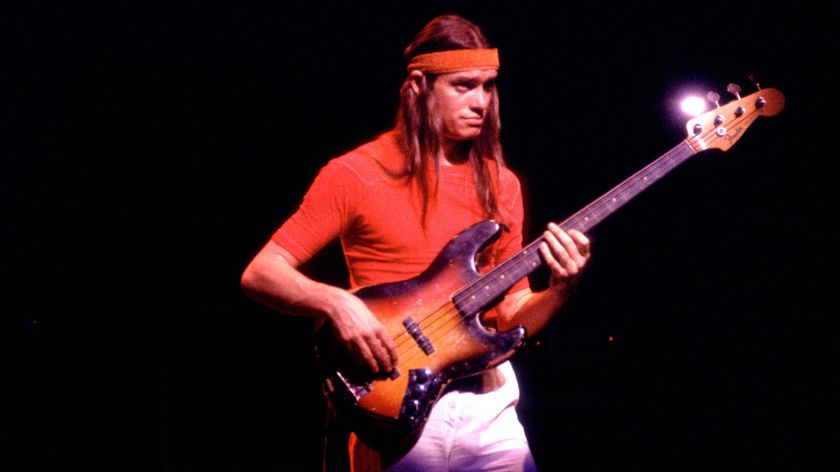In pictures: Luke Million's Adelaide studio
The Australian Nu Disco producer shows us around his synth-packed studio

The studio
Even by Australia’s previous high standards, the electronic music emanating from its shores, of late, has been of the finest calibre.
None finer, perhaps, than that of one Luke Million (aka Adelaide resident Luke Godson) whose deft touch with a floor-filling beat and a disco/funk-infused melody on cuts such as 2011’s electro workout, Arnold/Sun Splash has seen him rapidly rise to prominence in his homeland and way, way beyond.
Luke also happens to be one half of Future Classic’s synth-funk maestros, The Swiss, whose infectious good-time grooves have helped further cement his reputation as an in-demand producer and remixer who knows how to successfully transmit the vibe from his computer to the dance floor.
So, when Future Music got the call to speak with the amiable Luke Million in his rather impressive Adelaide studio we positively jumped at the chance. Here he talks us through his amazing collection of studio gear...

Yamaha DX7
“Great for synth basses, bells and the electric piano it was famous for. This is a MkI and I hook it up to a laptop with 10,000 sounds on it. They’re all over the internet.”

Roland Jupiter-6
“A great, great polysynth. People say this is the poor man’s Jupiter-8 but this has a lot of things that the 8 doesn’t have. You can sync the oscillators and it has cross modulation so you can get some cool sounds out of it.”

Oberheim OB-8
“My favourite keyboard of all time. I got it five or six years ago and I’ve managed to fit it into every track I’ve done since. It’s the best-sounding synth for brass - even the presets are amazing and it’s not hard to manipulate the sound.”
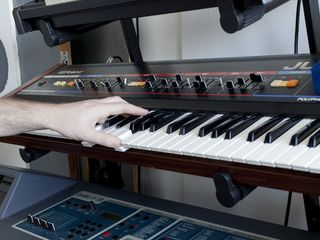
Roland Juno-6
“This is very similar to the SH-2 so for me it was easy. It has six voices but you do lose the warm and fatness of the oscillators. But it does great pads and strings. I have a Juno-106 too but this has a bit of extra balls to it.”
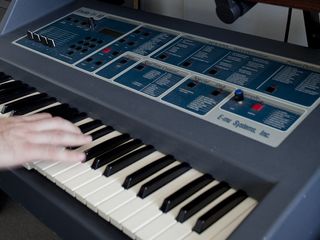
E-mu Emulator II
“This is one of my favourite purchases so far. You’ve got 8-bit sampling, and the great libraries from the ’80s.
"This one used to belong to INXS and it went on tour with them in the ’80s. I opened it up and found a set list on a strip of masking tape under the keyboard and this one is a hard disk model, which is full of the sounds they used when they played live.”

Native Instruments Maschine Mikro
“I’m just getting into the world of Maschine and I’m going to be using it in the live show.”
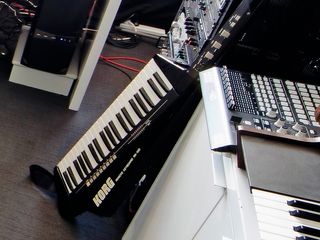
Korg RK-100 Keytar
“I just got this last week and I’m planning to bust this out at a gig soon. I’m going to hook it up to one of the Dave Smith Tetras and rock out.”

Korg MS-20
“This just begs to be played. It’s got the dual filter, the hi-pass and the low-pass, which you get all those squelchy techy sounds out of, but I just love to go for it with this one.”

Roland VP-330 Vocoder Plus
“Every studio needs a vocoder and the cool thing about this is that it has the string section from the RS-202 model with a choir or ‘human voice’ section which Vangelis used all over the Blade Runner soundtrack.”

Steinberg MR816X
“This is my audio interface, and for another eight channels of in and out I’ve got an Alesis ADAT interface. It’s all wired into my patchbay and from there I’ve got the ability to wire in a whole heap of external gear.”
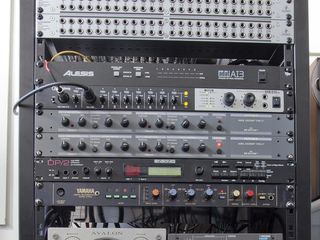
Aphex Aural Exciters
“This is the model with the big bottom too. They’re perfect for bass guitar or drums. Usually what I’ll do is split a kick drum on one channel and the bass on the other, then use the other unit for a stereo mix of hats and the snare.”
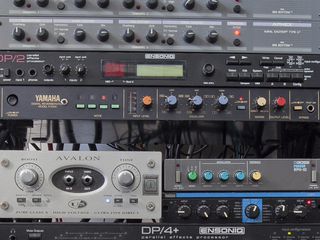
Yamaha R1000 Digital Reverb
“This is 12-bit and it’s a bit nasty but it’s pretty much my go to for drum machine snares. It’s got an EQ so you can pull out some of the lows and mids and give it a bright top end.”

E-mu Emax Sampler
“It has a great 12-bit lo-fi sound with analogue filters. Everyone loves the sound of these old machines. I’ve a Prophet 2000 sampler below it which is similar.”

Future Music is the number one magazine for today's producers. Packed with technique and technology we'll help you make great new music. All-access artist interviews, in-depth gear reviews, essential production tutorials and much more. Every marvellous monthly edition features reliable reviews of the latest and greatest hardware and software technology and techniques, unparalleled advice, in-depth interviews, sensational free samples and so much more to improve the experience and outcome of your music-making.


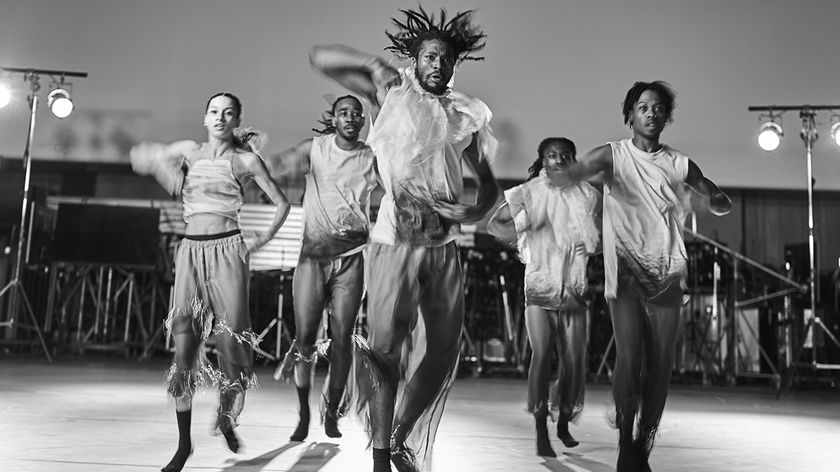
Refurbished Abbey Road Studio One reopens with evening of "boundary-pushing expressive dance" that blends styles from ballet to hip-hop and krump - and a new mixing desk

“I was like, ‘man - this is the energy’”: Billie Eilish’s mix engineers reveal the star's “favourite part” of her smash hit, Birds Of A Feather

Refurbished Abbey Road Studio One reopens with evening of "boundary-pushing expressive dance" that blends styles from ballet to hip-hop and krump - and a new mixing desk

“I was like, ‘man - this is the energy’”: Billie Eilish’s mix engineers reveal the star's “favourite part” of her smash hit, Birds Of A Feather


![Chris Hayes [left] wears a purple checked shirt and plays his 1957 Stratocaster in the studio; Michael J. Fox tears it up onstage as Marty McFly in the 1985 blockbuster Back To The Future.](https://cdn.mos.cms.futurecdn.net/nWZUSbFAwA6EqQdruLmXXh-840-80.jpg)

